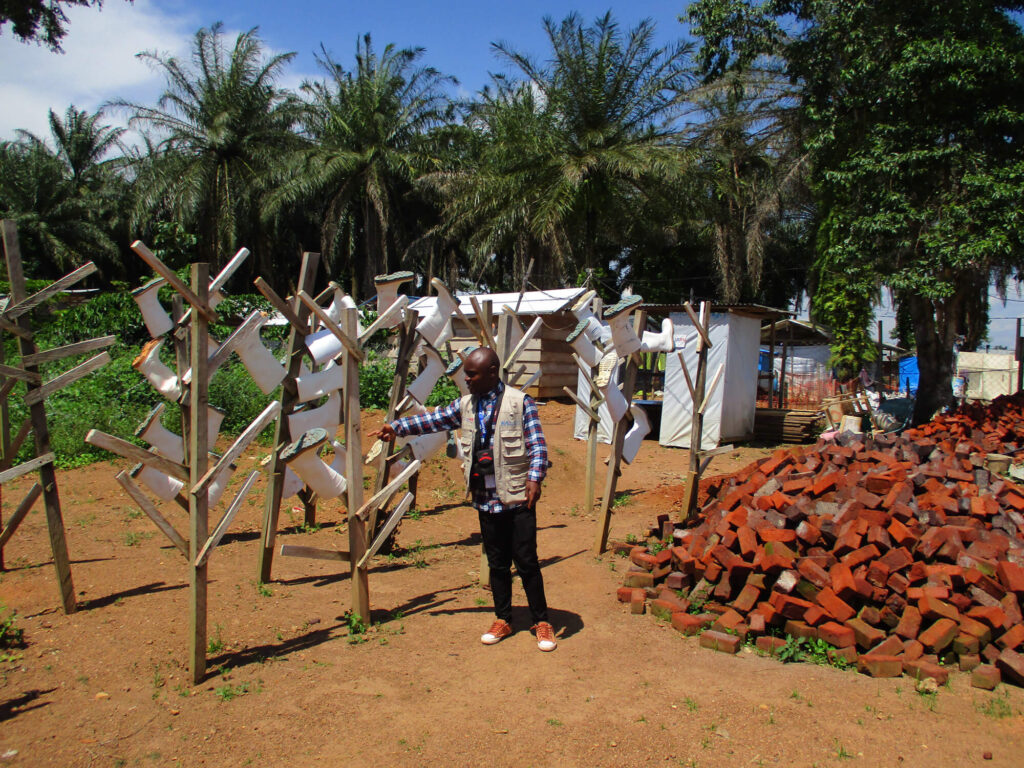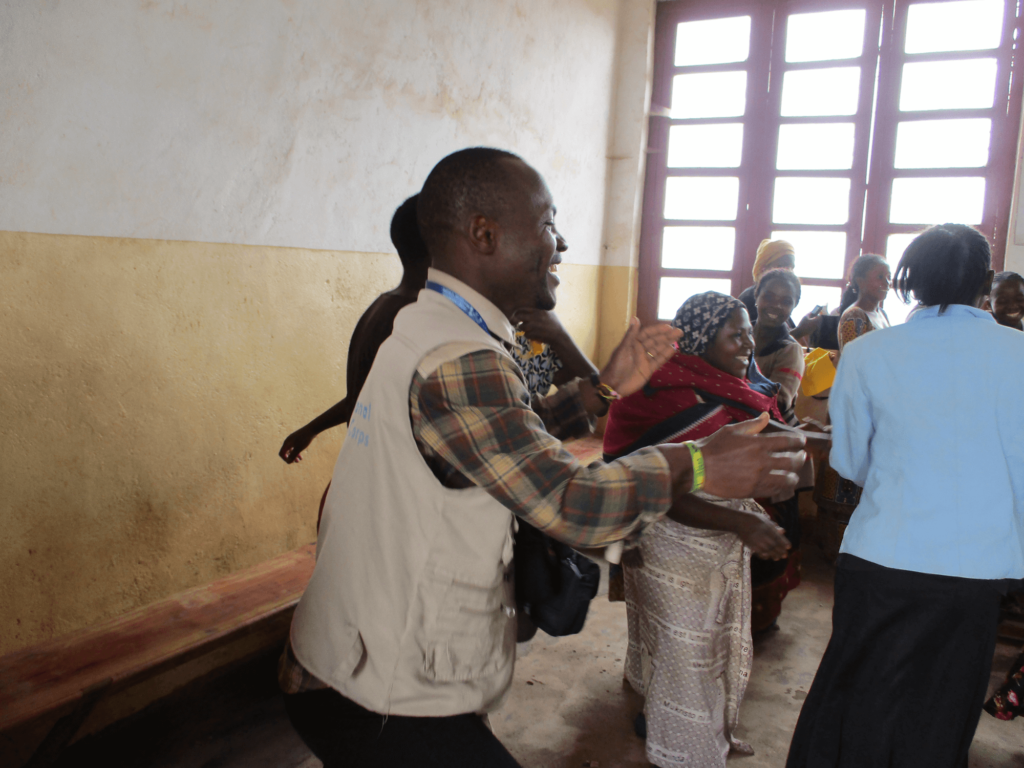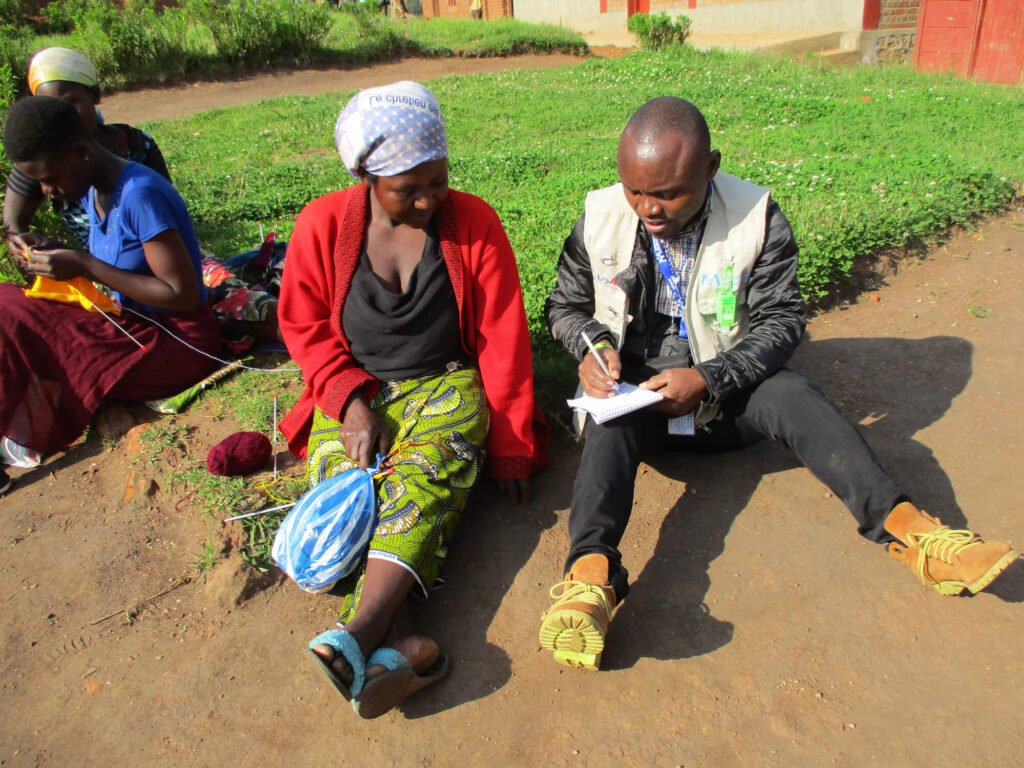I come from Mbutu, a small village in Maniema province, in the central-eastern part of the Democratic Republic of the Congo (DRC). I was born into a polygamous family, with 16 children. Six of my siblings have since passed away, and my father—a local tribunal judge and teacher—died when I was four years old, but I was lucky to grow up with caring brothers and sisters. We received equal opportunities and much encouragement to be confident in our abilities and pursue long-term studies.
In 1994, my country entered a long period of instability, when Rwandan Hutu refugees fled to DRC to escape the genocide in their country. Two years later, a brutal civil war broke out in DRC, led by Laurent Desire Kabila, with support from Rwanda and Uganda. In what would become the world’s bloodiest conflict since World War II, roughly 6 million Congolese died in a war that involved multiple foreign armies and armed groups, while millions more endured widespread human rights abuses. The fighting, which continues in the eastern part of my country today, has devastated our economy and infrastructure, and has caused massive physical and psychological damage. Our education, healthcare, legal and road systems remain in shambles.
In 1996, when the war broke out, I was nine years old. My siblings and I used to run into the bush to escape the fighting. I was in charge of fetching water, pounding grain, collecting wood for fires and taking care of the house when my mom left to try to make a living. The schools were closed, which made me sad, because I feel children are not meant to work—they are meant to learn. I often had trouble sleeping, and had bad nightmares. I thought that if I could close my ears, I wouldn’t hear the shelling anymore. I stopped eating and would lie down in the street waiting, hoping for my brother or sister to come from the city and pick me up. I told myself that if I survived, I would one day finish school and work to help my community.

In 2009, at the age of 24, I got my wish. I went to Uganda to pursue my higher education for almost seven years, an experience that opened my eyes to the world. After receiving my Master’s degree at Kampala International University in International Relations and Diplomatic Studies, I decided to serve my country by working with local NGOs focused on child protection. For four years I worked in the field of disarmament and demobilization for children associated with armed forces. Then, in November 2019, I joined International Medical Corps.
I feel very lucky because what I am doing now is my childhood dream job—I have always wanted to serve vulnerable groups affected by war and disaster. Currently, I hold the position of Grants and Communication Officer, and it is the most rewarding job that I can imagine. My work is critical to reporting the results of International Medical Corps’ work from the communities we serve.

Every day there is something new to discover. My work varies between being in the office or in the field. Both are very different, and I like this mix. We work in different areas of the country—in health facilities, host communities and Ebola Treatment Centers (ETCs). I enjoy visiting any of our ETCs and women’s safe spaces, where I can see different activities in one safe and happy place. I love exploring new challenges, creating innovative solutions and constantly learning.
The most challenging aspect of my job is that we deal with life-and-death situations every day. Everything is urgent and requires my full attention. In the field, I communicate with a lot of the people we serve. They ask me things I don’t know the answer to, like “When will Ebola finish?” I can’t make them any promises.

The primary issue facing my country today is the multiple epidemics, including cholera and measles, and intermittent outbreaks of Ebola—all of which has been exacerbated by COVID-19. Yet, I see every day the difference that International Medical Corps is making to address these challenges—before, during and after emergencies.
In response to the Ebola outbreak in DRC, International Medical Corps is providing infection prevention and control (IPC) support to 196 health facilities in DRC to ensure that healthcare delivery is safe, including 20 new facilities in Équateur province to halt the spread of the outbreak. Since August 2018, the screening and referral units supported by International Medical Corps have provided more than 12 million screenings for Ebola and 1.2 million screenings for COVID-19. Seeing the huge impact that we are having makes me hopeful and grateful.

The most important thing I do is put the people we serve at the heart of my work daily—it is extremely rewarding to see them smiling and happy. I admire the people we help for being so positive and hopeful amid war, Ebola, COVID-19, gender-based violence and so many more challenges. A couple of times, when asking them about their hopes for the future and what they want to become when they grow up, they have told me, “Mussa, I want to work with International Medical Corps, just like you!” It makes me so happy that they see the value of the work we do. This provides me with the motivation to keep serving every day.
International Medical Corps has worked in the DRC since 1999, providing healthcare, capacity-building in the health sector, gender-based violence (GBV) prevention and treatment, nutrition support, food security programs, and water and sanitation services. We also respond to disease outbreaks, including outbreaks of Ebola and measles, and the COVID-19 pandemic. To learn more about our work in DRC, visit https://internationalmedicalcorps.org/drc.
